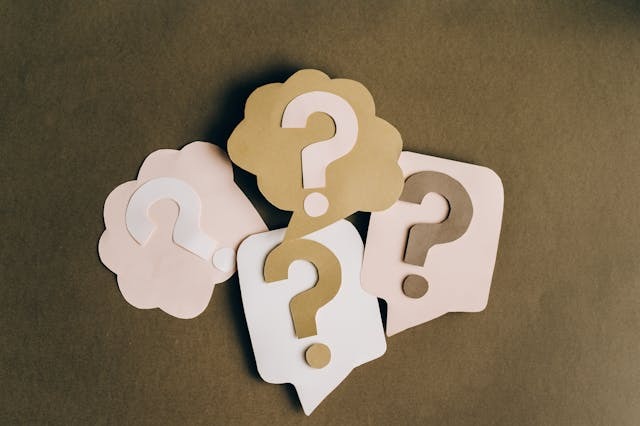Whole cloth? 纯属虚构
中国日报网 2021-03-09 15:15

Reader question:
Please explain this sentence, particularly “the whole cloth”: “This novel is not based on a true story – It’s made up, the whole cloth.”
My comments:
Obviously we’re not talking about clothes making. So, the “whole cloth” is not to be taken literally.
Here, the “whole cloth” here means the whole thing, the whole storyline of the novel in question. The speaker means to say that the novel is not based on a true story. Instead, it’s fiction, a made-up story, a fabrication, from beginning to end.
In other words, the whole cloth was made up.
Whole cloth?
This expression obviously originates from tailors who brag that their clothing is made or cut out of a whole piece of cloth – instead of being patched up together from different pieces of cloths or, worse, rags.
Obviously, if a suit is made from a whole piece of cloth, its color is even and therefore considered as better quality.
Anyways, metaphorically speaking, when people say a story is cut or made out of whole cloth, it means that story is totally untrue.
In other words, utterly false.
Got it?
All right. Here are recent media examples of “whole cloth”:
1. One of the biggest problems with American democracy is that it’s not democratic.
Two of the last five presidents were elected despite losing the popular vote, more than half the Senate is elected by roughly 18 percent of the population, and voting districts are increasingly gerrymandered in ways that disenfranchise the people who live there.
Our process for choosing the president, the Electoral College, is probably the strangest and most explicitly anti-democratic feature of the American political system. It was conceived in part as a firewall against majority will in case the mob ever elected someone grotesquely unqualified for the office. (It, uh, didn’t work.)
But the history is more complicated than that. Akhil Reed Amar, a constitutional scholar at Yale, has argued that the Electoral College was a concession to the slave states at the time of the founding. Another popular theory is that the Electoral College was designed to prevent presidential candidates from ignoring the smaller, less populated states.
Whatever the case, there’s no denying that the Electoral College is anti-democratic. According to Democratic data scientist David Shor, “The Electoral College bias is now such that realistically [Democrats] have to win by 3.5 to 4 percent in order to win presidential elections.” So why is it still around? What purpose does it serve today? And more importantly, can we get rid of it?
Jesse Wegman, an editorial board member at the New York Times, has made a definitive case against the Electoral College in his book Let the People Pick the President. Among other things, Wegman argues that the Electoral College creates a false picture of a country reduced to red and blue states when, in fact, the United States is a purple country — and Americans pay a huge price for upholding a system that doesn’t represent that diversity.
I spoke to Wegman about the shoddy origins of the Electoral College and why he thinks we have to eliminate it back in July, but the conversation is still relevant. Joe Biden has opened up a wide lead over Donald Trump in the national polls, but the race is by no means over, thanks to the Electoral College. If Trump loses the popular vote by a few million votes and somehow manages to win the election by securing 270 electoral votes, discontent over this antidemocratic relic may well boil over.
A lightly edited transcript of our conversation follows.
Sean Illing: You explain in the book how slipshod and hurried the process of conceiving the Electoral College was. No one really believed in it all that much and it was cobbled together at the last minute and only adopted because every other idea failed to win enough support. Were there any justifiable reasons for creating it in the first place?
Jesse Wegman: You can certainly look at things from the framers’ perspective and say it’s understandable that they were concerned about how to elect the president. It had never been done before. They were building this out of whole cloth and the concerns that they had were real.
One of the major concerns was that many of the delegates didn’t want Congress involved in electing the president since they had just created a system built on a separation of powers. Another concern was that citizens would never be able to make an informed decision about national candidates because they just wouldn’t have the information they needed, given the nature of communications technology back then.
Sean Illing: What would you say was the foremost reason they created the Electoral College?
Jesse Wegman: I don’t think there was a foremost purpose. As you said, they were scrambling to get this thing done and they debated it endlessly for something like 21 days. And none of the other proposals, like a national popular vote, had enough support to get into the Constitution.
But I’d say the driving force was to get the Constitution finished and sent out for ratification. Beyond that, the main issues were keeping the election of the president out of Congress’s hands and ensuring the electors who made up the Electoral College knew who the candidates were and could make wise decisions.
And then of course you had the immovable obstacle of slavery and ensuring that the slave-holding states didn’t unravel the whole process. James Madison himself said during the middle of the convention that “the popular vote is the fittest way to elect a president,” but that the South wouldn’t go for it. And he says this more than once. So it’s clear that the Founders knew the slave states had a ton of leverage.
- A definitive case against the Electoral College, Vox.com, October 16, 2020.
2. This page, readers may have noticed, doesn’t have the highest opinion of Donald Trump. We have never, however, endorsed the widespread vilification of those who have voted for the man.
We bristled when Hillary Clinton characterized Trump supporters as a “basket of deplorables.” We cheered when President-elect Joe Biden reached out a hand to all and called for the beginning of the end of the “grim era of demonization.”
Many people with legitimate grievances voted for Trump in 2016. While it was harder to excuse support for his reelection after witnessing his behavior in office, we don’t cast aspersions at all who wanted more conservative judges, fewer regulations and lower taxes.
But these are the times that try men’s souls, and we must pronounce unforgiving judgment on those who stand with Trump as he says he won an election he lost, spreads corrosive lies about American democracy and starts pulling levers no president has ever pulled to try to override the will of the people and jeopardize the peaceful transfer of power.
What do you call people who hoot, holler and cheer when Trump says, without any evidence, that he won Michigan, a state Biden carried by more than 150,000 votes, and summons local Republicans to the White House in an attempt to overturn his loss?
What do you call people who endorse vicious attacks on Georgia secretary of state Brad Raffensperger, the Republican who oversaw a clean count and recount that validated Biden’s win by more than 12,000 votes?
What do you call people who support a lawsuit urging courts to prevent Pennsylvania’s certification of its results based on whole-cloth conspiracies that boil down to a claim that votes from urban areas are presumptively illegitimate?
Call them destructive. Call them devious. Call them despicable. And, hell yes, call them deplorable.
- Dear Trump supporters: Those who egg on the president now are truly reprehensible, November 21, 2020.
3. These days you can typically trace prestige TV back to fact. From The People vs. O.J. Simpson to The Crown, some of the most buzzed about shows and miniseries have been based on real people, real crimes, and really shocking details that prove truth is often stranger than fiction. But what about the one show on television that relentlessly claims it’s based on fact?
Wondering if Fargo the show is based on a true story? You’re certainly not alone. Here’s what you need to know about those confusing sentences that open one of television’s best shows.
Is Fargo Season 1 Based on a True Story?
It sounds like the premise of a truly insane Netflix true crime docuseries. A downtrodden man accidentally takes a hit out on his high school bully and forms an odd pseudo friendship with a wandering hitman looking for trouble. But fortunately for the show’s countless murders, nothing about Fargo‘s first season is based on fact. Martin Freeman’s Lester Nygaard and Billy Bob Thornton’s Lorne Malvo are completely fictional.
Is the Fargo Series Based on a True Story?
It’s easy to see why some people think that Fargo is based on a true story because the series itself says it is every episode. Each installment of Fargo starts with the same opening text: “This is a true story. The events depicted in this film took place in [location] in [year]. At the request of the survivors, the names have been changed. Out of respect for the dead, the rest has been told exactly as it occurred.” From season to season, the only part of that opening sequence that has changed is the location of those crimes and the year in which they took place.
This false claim is actually an homage to the Coen brothers’ original movie of the same name. The 1996 film opened with that exact text. Technically Joel and Ethan Coen’s film was inspired by two different true crimes. But the directors and writers wrote so much around those crimes they created their own fictional story. As a result Fargo‘s “true story” claim is actually a lie, one that adds to the ever odd and almost mythic appeal of the movie.
Fargo the series is even further removed from true crime. “I can’t speak to the movie. But the show… It’s all just made up,” showrunner Noah Hawley told Men’s Health in 2014. “The whole cloth. I didn’t go looking for true crime. It started from a character standpoint and everything grew organically out of that.”
- Is the TV Show ‘Fargo’ Based on a True Story? By Kayla Cobb, Decider.com, December 28, 2020.
本文仅代表作者本人观点,与本网立场无关。欢迎大家讨论学术问题,尊重他人,禁止人身攻击和发布一切违反国家现行法律法规的内容。
About the author:

Zhang Xin is Trainer at chinadaily.com.cn. He has been with China Daily since 1988, when he graduated from Beijing Foreign Studies University. Write him at: zhangxin@chinadaily.com.cn, or raise a question for potential use in a future column.
(作者:张欣 编辑:丹妮)

















 英语点津微信
英语点津微信 双语小程序
双语小程序